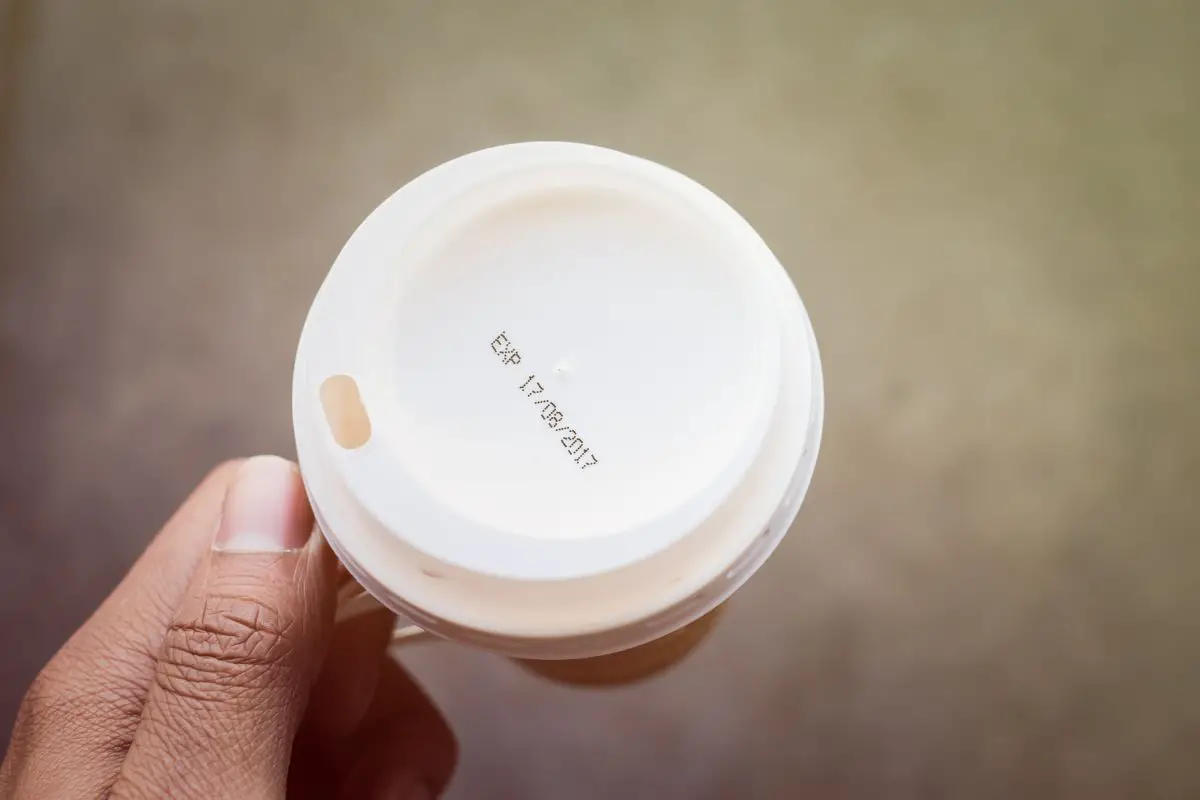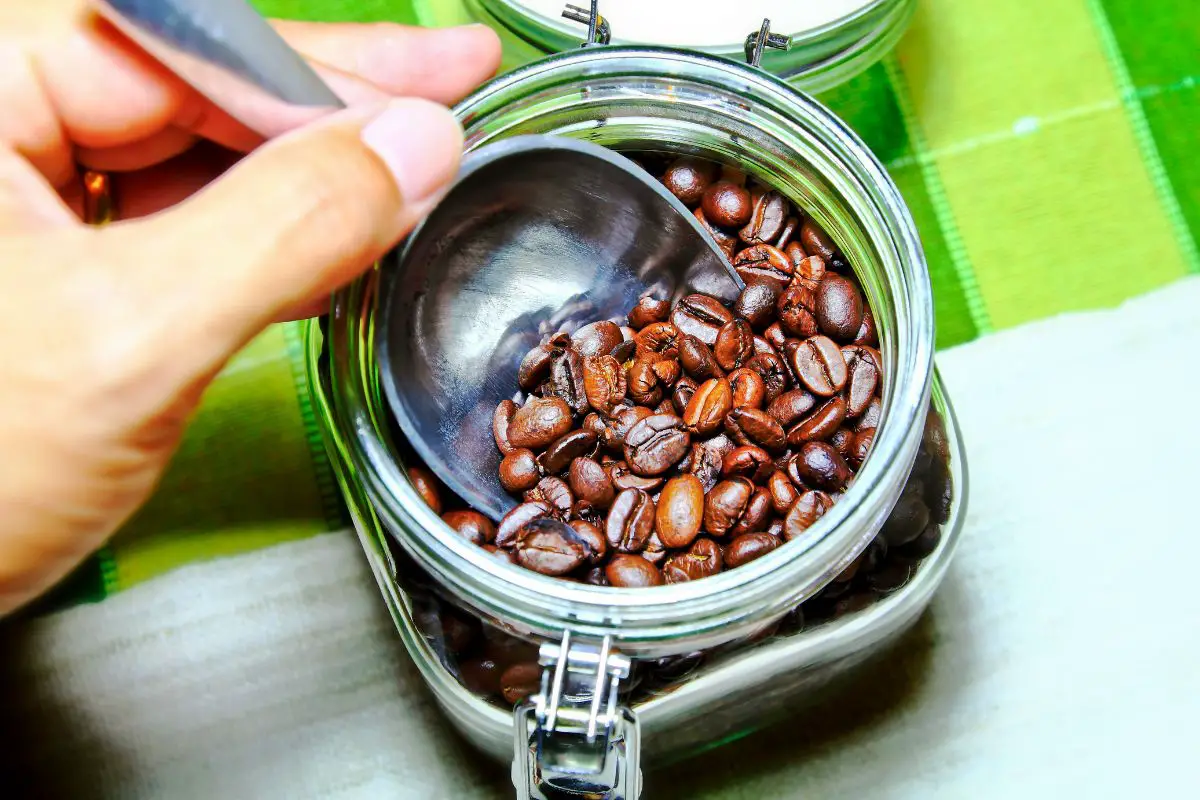Coffee lovers often find themselves facing a dilemma when confronted with expired coffee. The mere thought of having to part ways with their beloved beverage can be disheartening. However, this predicament begs the question: can you drink expired coffee? The answer to this query is not as straightforward as one might hope.

In this article, we will delve into the world of coffee expiration dates, assessing the quality of expired coffee, and the potential risks associated with consuming it. Additionally, we will explore ways to extend the shelf life of coffee and provide alternatives for those unfortunate instances when coffee has reached its expiration date. By understanding the complexities surrounding expired coffee, coffee enthusiasts can make informed decisions regarding their beloved beverage.
So, join us as we navigate through the realms of coffee expiration and uncover the truth behind the question: can you drink expired coffee?
Key Takeaways
- Coffee expiration dates indicate the recommended time frame for optimal taste and quality, and consuming expired coffee may result in a stale taste and decreased flavor.
- Expired coffee can potentially be contaminated with mold or bacteria, leading to health risks such as gastrointestinal discomfort and food poisoning.
- Storing coffee properly in an airtight container in a cool, dark place can help extend its shelf life.
- Repurposing expired coffee grounds as a natural exfoliant or fertilizer can be a sustainable practice that gives them a second life and benefits plant growth.
Understanding Coffee Expiration Dates
Coffee expiration dates are an indication of the recommended time frame for consuming the product in order to ensure optimal taste and quality. These dates are typically determined by the coffee manufacturer based on various factors such as the type of coffee bean, the roast level, and the packaging method.
While it is not unsafe to consume coffee that has passed its expiration date, the flavor and quality may deteriorate over time. Coffee is a perishable product, and over time, it may lose its freshness and develop a stale taste. This is due to the oxidation process that occurs when coffee comes into contact with air, moisture, and light. Additionally, the oils and compounds that give coffee its distinct flavor and aroma may start to break down over time.
It is important to note that the expiration date on coffee packaging does not necessarily mean that the coffee will become harmful or unsafe to consume. However, it is recommended to assess the quality of expired coffee before consuming it.
In the next section, we will explore methods for assessing the quality of expired coffee, ensuring that your coffee drinking experience remains enjoyable and safe.
Assessing the Quality of Expired Coffee
Assessing the quality of coffee that has exceeded its recommended consumption timeframe involves evaluating its sensory attributes, chemical composition, and potential health risks.
When evaluating the sensory attributes of expired coffee, one should consider its aroma, taste, and appearance. Expired coffee may have a stale or off-putting smell, and its taste may be bitter or bland. Additionally, the coffee may appear dull and lack the characteristic richness and color associated with fresh coffee.
Chemically, expired coffee may undergo changes that affect its quality. The oxidation of compounds such as oils and acids can result in a decrease in flavor and aroma. The breakdown of proteins and carbohydrates can also contribute to a change in taste and texture. These chemical changes may lead to a less satisfying coffee experience.
From a safety perspective, expired coffee may pose potential health risks. Over time, coffee can become contaminated with mold or bacteria, especially if it has been exposed to moisture or improper storage conditions. Consuming coffee that is contaminated may lead to gastrointestinal discomfort, food poisoning, or other adverse health effects.
Assessing the quality of expired coffee involves considering its sensory attributes, chemical composition, and potential health risks. Understanding these factors can help individuals make informed decisions about whether to consume expired coffee or dispose of it.
Transitioning into the subsequent section about the potential risks of consuming expired coffee, it is important to further explore the potential health implications of consuming such coffee.
Potential Risks of Consuming Expired Coffee
The potential hazards associated with consuming coffee that has exceeded its recommended consumption timeframe are multifaceted and can have detrimental effects on one’s well-being.
When coffee is past its expiration date, it may undergo chemical changes that can impact its flavor, aroma, and overall quality. Stale coffee can taste bitter, sour, or flat, which can diminish the enjoyment of the beverage.
Moreover, expired coffee may contain higher levels of acrylamide, a potentially harmful chemical compound that forms during the roasting process. Acrylamide has been linked to various health issues, including an increased risk of cancer, neurological damage, and reproductive problems.
In addition to acrylamide, expired coffee may also harbor mold and bacteria growth. Coffee beans and grounds provide an ideal environment for microorganisms to thrive, especially when stored improperly or for an extended period. Consuming coffee contaminated with mold or bacteria can lead to gastrointestinal discomfort, food poisoning, or allergic reactions, particularly in individuals with weakened immune systems.
To mitigate the potential risks associated with consuming expired coffee, it is crucial to store it properly in an airtight container in a cool, dark place. Additionally, purchasing coffee in smaller quantities and grinding it as needed can help maintain its freshness. Taking these precautions can extend the shelf life of coffee and ensure a safer consumption experience.
Ways to Extend the Shelf Life of Coffee
This paragraph discusses ways to extend the shelf life of coffee, specifically focusing on proper storage methods and using coffee grounds beyond their expiration date.
Proper storage methods, such as storing coffee in an airtight container in a cool, dark place, can help to preserve its freshness and flavor for a longer period of time.
Additionally, using coffee grounds beyond their expiration date can be achieved by repurposing them for other purposes, such as using them as a natural exfoliant or as a fertilizer for plants.
Proper Storage Methods

To ensure the preservation of coffee flavor and quality, implementing appropriate storage methods is crucial. Here are some key ways to store coffee properly:
- Keep coffee in an airtight container: Oxygen is the enemy of coffee freshness, so storing it in an airtight container helps to prevent oxidation and maintain flavor.
- Store in a cool, dark place: Heat and light can accelerate the deterioration of coffee, so it is best to keep it in a cool and dark location, such as a pantry or cupboard.
- Avoid moisture exposure: Moisture can lead to the growth of mold and spoil the coffee. Therefore, it is important to store coffee away from humid environments, such as near the stove or sink.
- Don’t freeze coffee beans: Freezing coffee can cause condensation and damage the flavor. It is better to store coffee in airtight containers at room temperature.
By following these storage methods, coffee lovers can enjoy a fresh and flavorful cup of coffee.
Moving forward to the next section, let’s explore the possibilities of using coffee grounds beyond their expiration date.
Using Coffee Grounds Beyond Expiration
Proper storage methods play a crucial role in maintaining the quality and safety of coffee. However, even if coffee grounds have expired, they can still be put to use in various ways. While consuming expired coffee may not be advisable due to potential changes in taste and quality, repurposing coffee grounds beyond their expiration date can be a viable option.
By incorporating a 2 column and 4 row table, we can illustrate some alternative uses for expired coffee grounds. These include using them as a natural fertilizer for plants, as an exfoliating scrub for the skin, as an odor absorber, and even as a natural dye for fabrics.
These creative alternatives allow for the utilization of expired coffee grounds in safe and practical ways. Transitioning into the subsequent section, let’s explore alternative options for those seeking alternatives to expired coffee.
Alternatives for Expired Coffee
This discussion will focus on two alternatives for expired coffee: repurposing coffee grounds and exploring different coffee options.
Repurposing coffee grounds is a sustainable practice that involves using the grounds for other purposes such as gardening or skincare.
Exploring different coffee options refers to trying alternative types of coffee, such as decaf or instant, when expired coffee is no longer suitable for consumption.
Repurposing Coffee Grounds
Repurposing coffee grounds can be a creative way to give them a second life. One option is to use them as a natural fertilizer for plants. Coffee grounds are rich in nutrients such as nitrogen, potassium, and phosphorus, which are essential for plant growth.
Adding coffee grounds to the soil can improve its structure, increase water retention, and promote microbial activity. They can also be used as a natural pest deterrent, as they repel certain insects and pests. However, it is important to note that coffee grounds should be used in moderation. Excessive amounts can disrupt the pH balance of the soil and harm plants.
By repurposing coffee grounds for gardening purposes, individuals can reduce waste and contribute to sustainable gardening practices.
Transitioning to exploring different coffee options, there are various alternatives to consider when dealing with expired coffee.
Exploring Different Coffee Options
One can expand their coffee horizons by exploring a variety of alternative options that offer unique flavors and aromas.
These options include:
- Cold Brew: This method involves steeping coffee grounds in cold water for an extended period, resulting in a smooth and low-acidic coffee concentrate. It is a great choice for those who prefer a less bitter flavor.
- Pour-Over: This technique involves pouring hot water over coffee grounds in a slow and controlled manner. It allows for a clean and balanced cup of coffee, highlighting the intricate flavors of the beans.
- French Press: This brewing method involves steeping coffee grounds in hot water and then using a plunger to separate the liquid from the grounds. It produces a full-bodied and robust coffee with a rich flavor profile.
Exploring these alternative coffee options can provide a unique and enjoyable experience for coffee enthusiasts. However, it is important to consider the safety aspects of drinking expired coffee, which will be discussed in the subsequent section.
Final Thoughts on Drinking Expired Coffee

In conclusion, it is essential to consider the expiration date of coffee as neglecting it would be akin to sipping from a stagnant pond, where the once invigorating aroma and flavors have been replaced by a putrid and stale concoction.
Drinking expired coffee can have detrimental effects on one’s health. Over time, coffee beans undergo oxidation, which leads to the degradation of their flavor compounds and the formation of unpleasant flavors. This process occurs more rapidly after the expiration date, as the protective packaging loses its effectiveness.
Consuming expired coffee may result in a bitter and rancid taste that is unpalatable. Moreover, expired coffee can contribute to foodborne illnesses as it may harbor harmful bacteria and mold. These microorganisms can multiply and produce toxins, posing a risk to individuals with weakened immune systems or allergies.
Therefore, it is strongly recommended to discard expired coffee and opt for fresh alternatives. By doing so, one can enjoy the full-bodied aroma and rich flavors that coffee has to offer, while ensuring their safety and well-being.
Frequently Asked Questions
Can expired coffee make you sick?
Expired coffee can potentially make you sick due to the growth of bacteria and mold. Consuming these contaminants may lead to foodborne illnesses, such as gastrointestinal issues. It is recommended to avoid drinking expired coffee for safety reasons.
How long does coffee stay fresh after the expiration date?
The freshness of coffee after the expiration date varies, depending on factors such as storage conditions and the type of coffee. It is advisable to consume coffee within a week or two after the expiration date to ensure quality and safety.
Can I still enjoy the flavor of expired coffee?
Enjoying the flavor of expired coffee is subjective, as it depends on personal preference. However, it is generally not recommended to consume expired coffee due to potential deterioration of quality, taste, and potential health risks.
Is it safe to consume expired instant coffee?
Consuming expired instant coffee may be unsafe due to potential degradation of quality, loss of flavor, and growth of harmful bacteria. Hence, it is advisable to avoid consuming expired instant coffee to ensure personal safety.
Are there any health benefits to drinking expired coffee?
Drinking expired coffee does not provide any health benefits. Expired coffee may have a stale taste and potentially harmful bacteria. It is advisable to consume fresh coffee for optimal taste and safety.
Conclusion
In conclusion, the consumption of expired coffee poses potential risks due to the deterioration of its quality and the growth of harmful bacteria.
While there may be ways to extend its shelf life, it is advisable to prioritize freshness and discard expired coffee altogether.
Just as a crumbling foundation weakens a building, expired coffee undermines the enjoyment and safety of your beverage.
Therefore, it is crucial to be mindful of coffee expiration dates and opt for alternatives when faced with expired coffee.
Related articles: